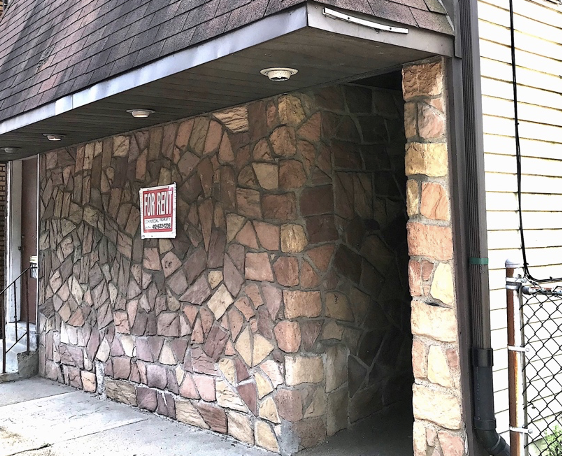By Nathan Polacek, Staff Writer

Since 2015, Pittsburgh landlords, through the Apartment Association of Metropolitan Pittsburgh, have been fighting an ordinance classifying “source of income” as a protected class. [1],[2],[3],[4] Under Pittsburgh’s housing discrimination ordinance, landlords are prohibited from rejecting potential Section 8 tenants.[5] HUD’s Housing Choice Voucher, commonly referred to as a Section 8 Voucher, is intended to partially subsidize rent for very low-income families so they can obtain safe and sanitary housing they couldn’t afford otherwise.[6] The ordinance was enacted because city officials saw that many landlords in the private rental market would simply not accept Section 8 tenants, and those who did often limited the voucher-holders to high-poverty areas with majority-minority populations.[7]
According to one analysis, communities in the city of Pittsburgh, where voucher holders are concentrated are in “East Liberty, Carrick, Sheraden/Esplen, Knoxville and Crawford-Roberts and the Middle Hill.” [8] Voucher holders throughout the Allegheny County suburbs are concentrated in “Wilkinsburg, McKeesport, McKees Rocks, Penn Hills, Duquesne, Clairton and Swissvale.”[9] The same analysis found that there were little to no voucher holders living in Allegheny County communities with the lowest poverty levels.[10]
In appealing the trial court ruling for the Apartment Association, attorneys for the city argued, that housing discrimination on the basis of whether a potential tenant receives housing assistance is a major problem in the city.[11] They also argued that forbidding such discrimination is necessary to protect Pittsburgh citizens, and is well within the city’s authority as “’a valid exercise of police power’” under Pennsylvania law.[12] The Apartment Association’s main arguments are that the ordinance violates Pennsylvania law on home-rule charters by demanding businesses undertake specific duties, and that the ordinance puts burdensome regulations on landlords.[13]
The Section 8 program requires a large quantity of information and documentation from landlords such as personal identification background checks, and verification of paid property taxes from the taxing authorities.[14],[15] Additionally, the program requires landlords to enter into a contract with the respective housing authority, in this case the Allegheny County Housing Authority. [16] This further restricts a landlord’s ability to increase rent as needed and is causing greater notice periods than required by statute.[17] In some cases, landlords may be required to use leases drafted by the housing authority or obtain approval of a lease prior to entering into a lease with the tenant.[18]
The Pennsylvania Supreme Court affirmed the decision of the lower courts, and held that preventing discrimination on the basis of source of income was not an authority granted by the Pennsylvania Human Relations Act.[19] Rather, the issue of the ordinance was similar to a prior decision where the Court held that the Pittsburgh Safe and Secure Buildings Act exceeded the city’s authority under home-rule, but that the Paid Sick Days Act was compliant with home-rule.[20] Here, Pittsburgh’s Business Exclusion of the home-rule charter invalidates the Section 8 Nondiscrimination Ordinance, because it forces landlords to engage in business activity that was previously voluntary.[21] This decision will likely have an impact on other Pennsylvania cities such as Philadelphia and State College, as it could bring the validity of their own “source of income” ordinances into question.[22],[23]
[1] https://www.post-gazette.com/local/city/2020/02/11/Section-8-voucher-Pittsburgh-law-discrimination-housing-Commonwealth-Court/stories/202002110020.
[2] City of Pittsburgh, Pa., Ordinance 2015-2062 (Dec. 2015).
[3] City of Pittsburgh, Pa., Pittsburgh Code § 651.04(jj) (2022).
[4] https://www.hud.gov/topics/housing_choice_voucher_program_section_8.
[5] Id.
[6] https://www.hud.gov/topics/housing_choice_voucher_program_section_8.
[7] https://www.post-gazette.com/local/city/2019/02/10/Discrimination-law-regulation-court-case-Pittsburgh-income-Section-8-vouchers-landlords/stories/201902060107.
[8] https://newsinteractive.post-gazette.com/section-eight/
[9] Id.
[10] Id.
[11] https://www.post-gazette.com/local/city/2019/02/10/Discrimination-law-regulation-court-case-Pittsburgh-income-Section-8-vouchers-landlords/stories/201902060107.
[12] Id.
[13] Id.
[14] https://www.achsng.com/FAQlandlords.asp.
[15] https://www.post-gazette.com/local/city/2019/02/10/Discrimination-law-regulation-court-case-Pittsburgh-income-Section-8-vouchers-landlords/stories/201902060107.
[16] Id.
[17] Id.
[18] Id.
[19] Apt. Ass’n of Metro. Pittsburgh v. City of Pittsburgh, 261 A.3d 1036, 1047 (Pa. 2021).
[20] Id. at 1038.
[21] Id. at 1038-1041.
[22] https://www.post-gazette.com/local/city/2019/02/10/Discrimination-law-regulation-court-case-Pittsburgh-income-Section-8-vouchers-landlords/stories/201902060107.
[23] City of Philadelphia, Pa., Philadelphia Code § 9-1108(1) (2022).